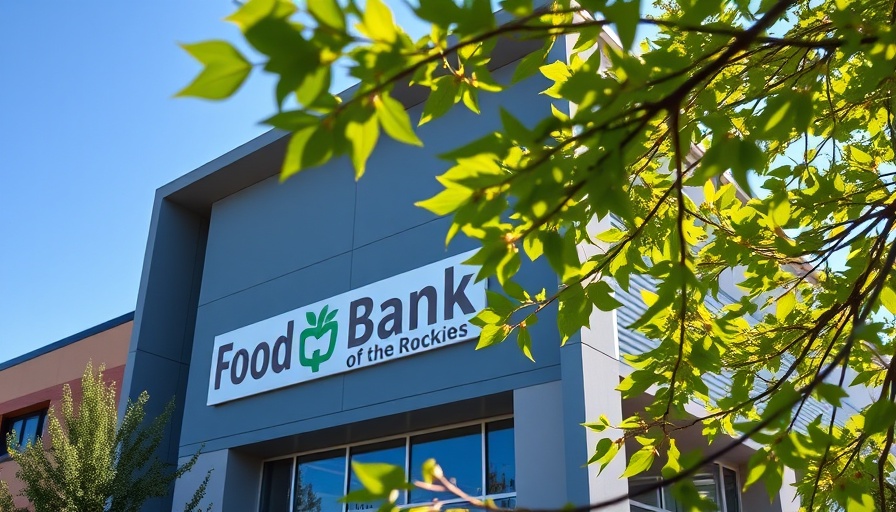
Food Bank of the Rockies Embraces a New Era
The Food Bank of the Rockies is poised for significant growth with the development of a new distribution center. After nearly two decades in their previous facility, organizational leaders have seized the opportunity to enhance their operations as they prepare to sell their existing center for $12.5 million to Denver Public Schools (DPS), aimed at bolstering food service efforts.
The move to a spacious 270,000-square-foot site in Aurora is not only a logistical upgrade but also a vital step in addressing the escalating demand for food security throughout the region. Steve Kullberg, the chief of staff, is excited about the upcoming change. “We’ve outgrown our old location, and this new distribution center is designed to meet the growing needs of our community,” he remarked.
Rising Demand for Food Security
As households across Colorado face rising living costs, the Food Bank recognizes the crucial role they play in alleviating hunger. The majority of their food supply now consists of fresh or frozen goods — a shift from the traditional canned goods. This transformation reflects a broader understanding of nutrition and the importance of providing nutrient-rich meals to those in need.
According to recent statistics, food insecurity affects 1 in 8 Coloradans, including 1 in 7 children. The new facility aims to expand its capacity to provide healthier options, including a significant increase in fresh produce and culturally relevant foods, further empowering the community.
Looking Towards the Future
Alongside immediate benefits, this ambitious project symbolizes a long-term commitment to the region. With the potential to distribute up to 100 million pounds of food annually, the Food Bank is set to triple its volunteer capacity and double the available cold-storage space. During the grand opening planned for December, community members will have the chance to participate in this transformative journey, reinforcing connections between the Food Bank and its supporters.
The Community Role and Funding Success
The successful sale of the existing facility to DPS underscores a communal ethos where local entities come together for collective benefit. As DPS plans to repurpose the site for food distribution, the continuity of services remains a focal point for both organizations. Kullberg emphasized the win-win aspect of the sale, reinforcing the idea that the center's new role will enhance food access for students and their families.
The Food Bank's new distribution center is largely funded through the generous contributions of individuals, corporations, and foundations, reflecting community support. With about $12 million needed to finalize the project, every dollar counts towards building a hunger-free future for Colorado residents.
Get Involved and Make a Difference
As the Food Bank of the Rockies embarks on this exciting chapter, they encourage the community to support their mission. Donations, whether large or small, go directly toward expanding food access and resources for those in need. By participating, community members become integral players in the fight against hunger.
To make a difference in the lives of your neighbors facing food insecurity, consider donating to the Food Bank’s capital campaign. Visit their website for more details — every contribution brings us one step closer to ensuring no one has to worry about their next meal.
 Add Row
Add Row  Add
Add 




Write A Comment